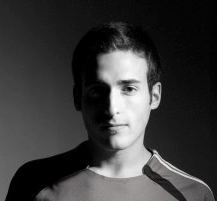 In my second year of University I took a course designed to analyze subcultures. The class was based around the theme of, “displacing is a way of surviving” (Minh-ha, 1990, 332) and we talked about what this meant to us and looked at various subcultures in detail.
In my second year of University I took a course designed to analyze subcultures. The class was based around the theme of, “displacing is a way of surviving” (Minh-ha, 1990, 332) and we talked about what this meant to us and looked at various subcultures in detail.One of our assignments was particularly interesting and it came up again in conversation with a group of friends this past week and I thought it appropriate to share. Below is an excerpt from the course syllabus detailing our assignment titled “Bricolage”:
Demonstrate your understanding of the term bricolage by taking an everyday object and puttering with its meaning. Malcolm McLaren took a safety pin, put it through his ear, and called it jewelry; Vivienne Westwood took garbage bags, sewed them onto supermodels, and called it haute couture. Your job is to select an everyday object and alter its meaning through creative play.
As an example of a past project our professor talked about the student who created a pack of playing cards. Now, these weren’t your standard 52 pack of playing cards, but rather an imitation of the sports cards that used to come with bubblegum inside. But, instead of famous athletes from various sports with their statistics on the back – this student developed “Doctor Cards.” Each card had a picture of a doctor on the front (in this case surgeons) and on the back were statistics for successful surgeries and other various categories. Their idea was, we give a lot of our time and attention to pro athletes, but the people who are actually saving lives receive little to no credit at all.
A couple of months ago in my post Playing to Win I alluded to conversations I have had with friends about life being a game. In our latest addition to the ongoing conversation we discussed an interesting theory, in relation with our bricolage, about the cards we hold in life.
 Much like a Chance card in Monopoly we decided that everyone in life is holding a card. For example, my friend works in the automobile industry and we decided that he held the “Car Card.” Meaning if we or someone we knew was interested in purchasing a vehicle he would be the person most of us would send them to. Or, we can look at a personal example, I was interested in purchasing business cards - nothing too flashy just a simple card with my name and some of my contact information. What did I do? I contacted my graphics design friend (Anton - acgraphics@ymail.com) and asked if he could help with the design and printing. Sure enough, he was more then willing to help me out and before I knew it I had what I was looking for.
Much like a Chance card in Monopoly we decided that everyone in life is holding a card. For example, my friend works in the automobile industry and we decided that he held the “Car Card.” Meaning if we or someone we knew was interested in purchasing a vehicle he would be the person most of us would send them to. Or, we can look at a personal example, I was interested in purchasing business cards - nothing too flashy just a simple card with my name and some of my contact information. What did I do? I contacted my graphics design friend (Anton - acgraphics@ymail.com) and asked if he could help with the design and printing. Sure enough, he was more then willing to help me out and before I knew it I had what I was looking for.You can use the cards you hold to help you, but as I think about our discussion I realize that our cards are better used to help the people we know. It helps to shine a light on the positive aspects of networking. The more people you get to know and the more time you spend talking with them – the more you realize you can both help each other.
Now I know what some of you are thinking, “what if I don’t have any special cards?” We did talk about the fact that some people hold more cards then others. This doesn’t mean that they will have more opportunities to succeed in life. If anything it creates the opportunity to mix/mingle and help people along the way.
Remember the goal of the Doctor Card bricolage: it was designed to showcase the life-saving power of doctors. The ability to help others is a very powerful way to show our cards in life.




3 comments:
Politcal Card: Voted in by percentage of electorate stat. Years in current position. Top issues and effective policies implemented.
That would be a great way to teach history to children. Could you imagine the Prime Minister trading card game.
Prime Minister Harper Pro-rouges the BATTLE!!!
the question "what if I don’t have any special cards?" is the opposite of "i am a certain card but i want (every)/(some)one to know it"
i feel this article describes the birth of advertising. What started as word of mouth grew into print and now its moved to digital medium. In a society where we are so connected (Article: For Better Or For Worse?) its even easier to find cards.
Twenty years ago you would go out on a limb whilst looking at that ad in the yellow pages and hope that your dentist was a good pick. Now with the social networking mediums we have, even seeing one person use that particular dentist makes the decision, and that card that much easier to choose.
Post a Comment